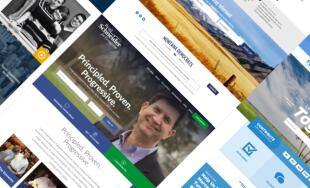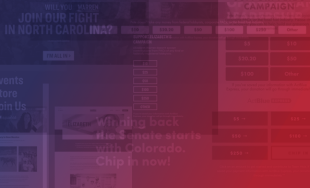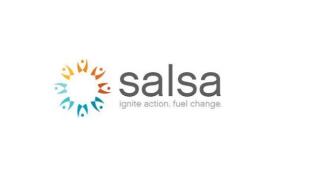The Most Popular Content On Political Websites Near Election Day
Over the past month, we've been involved in building special election campaign websites and primary websites for hotly contested races around the nation. Now that those races are over, but the bulk of races across the country are just heating up, we thought it'd be a great opportunity to take a close look at the content that voters were most interested in around the Election Day.
I chose four races on which we had great data: a US Senate Primary, a Congressional special election, a State Senate special election, and a State Senate primary. The elections were scattered through the country and each one had a lot of media attention and big spends for the respective position.
Next, I looked at the Google Analytics for each campaign from two weeks out through election day. I figured that this was the prime time in which media was covering the candidates, campaigns were sending email blasts, and the heaviest period of online and traditional advertising spending.
Since I wanted to get an idea of the most compelling content, I used total pageviews rather than visitors. The campaigns were all popular enough that I thought the factor of campaign staff and candidate family pageviews would be marginal compared to total views. I then subtracted out pageviews that were for the homepage or splash page -- the goal is to figure out what content voters are seeking out not just what they land on by default.
The content on the four campaigns was rather congruous, but if a campaign was lacking a content section (e.g., Events), I didn't count it against the average and just divided that section's sum by three rather than four.
The most popular five content sections were:
- About
- Issues
- News
- Events
- Multimedia
About and Issues were as I suspected. Those are the general areas that voters are most interested in when they visit the site. We still see candidates who leave their issues section blank for months at a time -- this data demonstrates that Issues content is a vital aspect of any online political campaign.
The News section is a result of individual articles being emailed out and candidate or issue related Google searches that land visitors on a specific news release. This fact reinforces the importance of SEO for political campaigns and of keeping a freshly updated website through a Content Management System.
Are the results surprising to you? Are they consistent with what you've seen on your own campaign site? Look forward to hearing if this limited test group aligns with other campaigns around the country.



Comments
Clay Schossow NMC team member
Hey Nick,
Good to know that you push candidates to update their sites and keep important info upfront.
Those are some great questions and I had fun looking into them. Surprisingly, only one of the four sites had an actual events feed on the homepage. The rest had an Events link in the main menu, but it was no more prominent than anything else on the site.
For multimedia, a couple of the sites had feeds of the Latest Video or Recent Pictures to the homepage, but just about all of the content was kept on the site (usually embedding YouTube videos on the site or using the Flickr API). Looking at the data in more detail, people were actually *navigating* to the Multimedia section, not just playing the latest video on the homepage or in a sidebar.
So, for both Events and Multimedia, it looks like people came to the site actually seeking that content out. It wasn't just pushed to the front of the site, enticing them to click through. Pretty cool!
Makes sense too -- I know when I go to anyone's site, my first stop is the Media section so I can view their latest ads or watch a video bio on them.
Thanks for having us look closer at that!
Clay
Nick
Thanks for the data. The results seem to reinforce what many of us in the campaign social media field already focus on. My firm always makes sure our candidate's webpages are current and have relevant information that is easily accessible to visitors.
I am curious to know how active the events and multimedia pages were. Additionally, to really understand the relevance of this data the analyst must account to the "viewability" of the events and multimedia pages from other pages, i.e. does the homepage show the upcoming or lack of upcoming events? Or does clicking a video from the homepage link you to an offsite source such as Youtube? Just my thoughts.
Thanks for the results!
Leave a comment